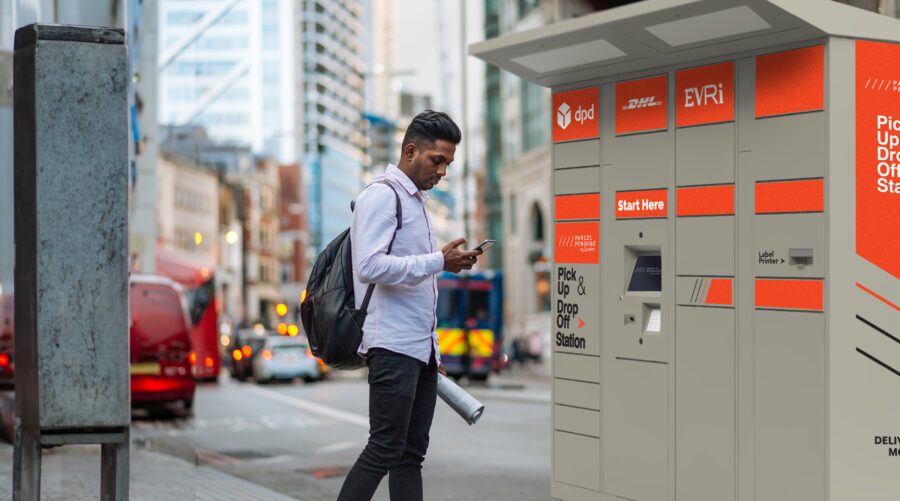
Multifamily
How IoT is Transforming Property Management
Written by: Parcel Pending
5 Min Read
Published: January 28, 2022
Updated: March 31, 2023
The Internet of Things (IoT) is changing every facet of real estate including multifamily communities. Let’s take a deeper dive into how IoT technology is transforming property management and what the future of the multifamily housing industry could look like.
IoT Defined & Its Benefits to Multifamily Property Management
The Internet of Things (IoT) describes the network of physical objects – “things – that are embedded with sensors, software, and other technologies for the purpose of connecting and exchanging data with other devices and systems over the internet. In fact, The number of IoT connected devices is expected to skyrocket to over 75 billion by 20251.
IoT technology and smart real estate are influencing decision-making when it comes to multifamily residents. In fact, Millennials are willing to pay about 20% more and stay longer in buildings that offer modern lifestyle conveniences like smart appliances2.
For property managers, the true benefits of adopting an IoT ecosystem approach for their real estate include:
- Improving the tenant experience
- Boosting operational efficiencies
- Strengthening multifamily building security
- Automating both mundane and critical tasks
- Conserving energy and resources
- Minimizing costs
- Improve air quality
- Reducing human error
Improving the Tenant Experience Starts with the Internet
No discussion about IoT applications in property management and the resulting resident experience is complete without discussing the Internet infrastructure. The typical tenant today has an average of 13 connected devices. Furthermore, Elizabeth Parks, president of Parks Associates, an IoT market research and consulting firm, said its research shows that 53% of U.S. broadband households reported they value technology now more than they did before COVID-193.
Steve Yahnke, director of IT at Continental Properties, said his firm uses a bulk Wi-Fi model with a white-glove service for its residents. Instead of residents signing up with the provider of their choice, the units are already “hot” (i.e., connected) at move-in.
“The pandemic has certainly brought this to the forefront,” Yahnke said. “With a lot of consumers working from home, streaming from home, playing games from home, they want as fast a speed as they can get. We want to make sure we get the residents the best cost, best speed, and best customer care.”
Given the ever-changing return to office policies, residents are demanding the flexibility to work from anywhere in their complex including common areas and what are frequently newly created co-working spaces. Ergonomic seating, multiple outlets, and stable Wi-Fi make it easy for residents to work from home while nudging up the numbers on the happiness scale. Savvy real estate managers are also creating outdoor connected working spaces.
Safe and Secure Parcel Delivery Remains Paramount
Of course, the pandemic, social distancing, and work-from-home policies have fueled eCommerce sales. Digital shopping continued to explode in 2021 even surpassing 2020 numbers: in 2021, eCommerce sales were up 4.4% – equal to about 13% of all worldwide sales4. Most of the purchases ended up needing a safe delivery location: enter smart lockers.
Smart lockers, utilizing the real estate property’s Wi-Fi, allow residents to retrieve their packages 24/7 in as little as 10 seconds with zero human interaction. Research from the National Apartment Association shows that 31% of residents say they would pay more to live in a community that made getting packages easier, with many saying they would pay between $5 and $10 extra per month5.
Cozy + Comfort = Content Residents
Comfort always remains critical when it comes to a real estate rental property. Of course, thermostats have been around since 1883; however, it’s the new smart thermostat technology that is creating a buzz. Smart technology allows management to monitor heating and cooling levels. Residents even can program multiple daily temperature settings for their units – all while maintaining energy efficiency. Offering this or similar smart apartment solutions that streamline residents’ day-to-day living experience can help increase a property’s resident retention rate.
Boosting Operational Efficiencies
As resident expectations change, the duties of a property management company can be expected to change as well. Many property managers are embracing property management tools like smart access controls which allow residents and staff to effortlessly enter locked areas. Whereas on-site managers of yesteryear needed to physically lock areas such as pools or gyms, today these areas are managed through IoT devices, which lowers labor costs. As a bonus return on investment, residents often pay for the property’s electronic fobs, key cards, or mobile apps.
A buildings’ IoT system automation also contributes to operational efficiencies. Dashboards of connected devices highlight spikes in energy consumption and recommended remedies. These connected devices can alert the building manager about energy usage, water access, and any disruption in service – which can ultimately help multifamily communities reduce operating costs. 43% of the building managers in America today believe that IoT technology will have a massive impact on how they run their buildings6.
There are even new IoT devices using artificial intelligence for predictive analytics so that managers are alerted to perform preventive maintenance. According to a Johnson Controls survey of the company’s Building Efficiency Panel, 70% of respondents believe that the ability to predict and diagnose problems and provide or propose solutions will be a “game changer”7.
Strengthening Community Security
Safety and security are a perennial concern for residents. Residents shouldn’t have to wonder how to prevent theft in the community. Communities looking to strengthen their security measures can install connected cameras and wireless sensors to act as virtual sentries, alerting management to a break-in. Software can automatically send residents and/or managers photo or video reports. Some buildings even offer these amenities in each unit, affording residents peace of mind.
Improving Air Quality
COVID ushered in an era of heightened awareness of indoor air quality (IAQ). New smart building systems afford multifamily real estate managers the ability to monitor humidity, temperature, volatile organic compounds, C02, combustion byproducts, and airborne particulate matter. Adopting this type of building management system technology literally allows residents to breathe easier.
As IoT devices become readily available to the multifamily real estate industry, they become a future-proof competitive edge in the battle for residents. To find out how IoT technology – like smart lockers – can help you attract and retain residents, contact a Parcel Pending by Quadient representative today.
Sources:
- Statista. Internet of Things (IoT) connected devices installed base worldwide from 2015 to 2025 (in billions). (2016, November 27). https://www.statista.com/statistics/471264/iot-number-of-connected-devices-worldwide/.
- Brivo. (n.d.) Proptech Investments to Improve Your Multifamily Portfolio [Report]. Retrieved from: https://resources.brivo.com/multifamily/brivo-proptech-investments
- Serlin, Christine. Multifamily Executive. 7 Takeaways to Leverage Proptech. (2021, June 1). https://www.multifamilyexecutive.com/technology/7-takeaways-to-leverage-proptech_o.
- Oberlo. How Many People Shop Online in 2021?. (n.d.) https://www.oberlo.com/statistics/how-many-people-shop-online.
- National Apartment Association. (2018). Irresistible Amenities: Here’s What Renters Want [Report]. Retrieved from: https://www.naahq.org/news-publications/units/march-2018/article/irresistible-amenities-heres-renters-want
- Daintree Networks, Inc. (2014, October 21). Open Standards-Driven Solutions Key to Future-Proof Smart Buildings [Press release]. Retrieved from: https://www.prnewswire.com/news/daintree-networks%2C-inc./
- Deloitte. (2016). Smart buildings: How IoT technology aims to add value for real estate companies [Report]. Retrieved from: https://www2.deloitte.com/us/en/insights/focus/internet-of-things/iot-commercial-real-estate-intelligent-building-systems.html





